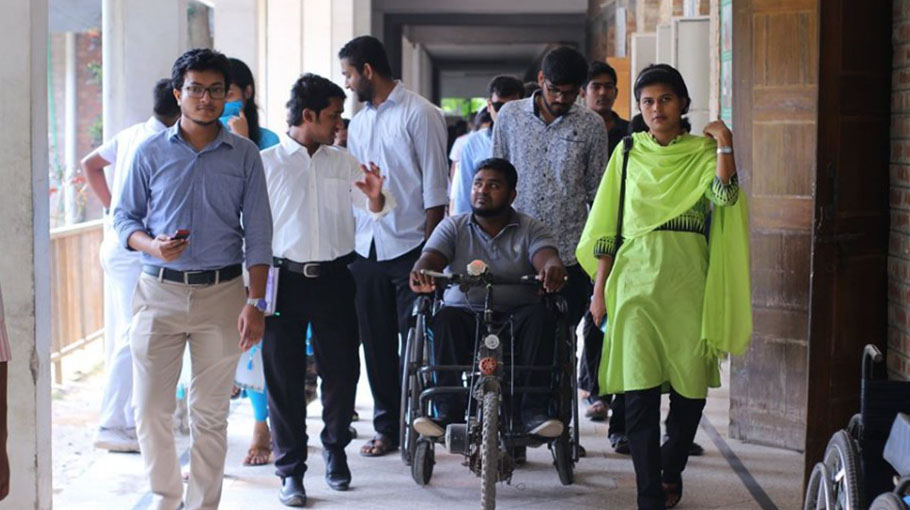Justice eludes: barriers persist for persons with disabilities

Children with disabilities often find themselves extremely helpless. Many cannot express themselves verbally, some cannot hear, see, or speak. In such cases, when they are subjected to abuse, the victims cannot describe the incident. Often, when they suffer severe abuse or rape, they do not receive adequate legal assistance.
Various studies show that children with disabilities experience abuse at some point in their lives, whether mental or physical. Incidents like rape occur frequently.
Talking with investigating officers at several police stations revealed that, in many cases, when children are raped, the cases are filed based on descriptions provided by their parents. Often, understanding the child’s language is very difficult. Most of the time, the officers do not understand their language.
Additionally, it has been reported that no training is provided to these police officers to understand the language of these communities, leaving the actual incident often obscured.
Conversations with relevant authorities reveal that statements from victims of rape are taken under Section 22 of the Women and Children Repression Prevention Act (Amendment 2003). The authorities mention that they face various obstacles when taking statements from these children. Some children drool while giving statements, some cannot speak, and others have mental disabilities. Most of these children are aged between 5 and 12 years.
The ordeal increases several times when a disabled child is raped. For people with speech and hearing disabilities, there are problems related to sign language interpreters. In the case of visually impaired individuals, questions often arise about identifying the perpetrator.
Physically disabled individuals face obstacles in accessing the court. Authorities are still hesitant to call the country’s courts disabled-friendly. Yet, the Rights and Protection of Persons with Disabilities Act 2013 ensures all types of facilities for disabled individuals to seek justice.
However, the Bangladesh Women and Children Repression Prevention Act does not specifically mention women or children with disabilities.
The Rights and Protection of Persons with Disabilities Act 2013, Schedule 12, and Articles 13, 15, and 16 of the UN Convention, along with Sustainable Development Goal 16, include state responsibilities and necessary guidelines for preventing and remedying violence and abuse against disabled women and children.
There are no specific guidelines in the Women and Children Repression Prevention Act 2003 or other laws regarding the trial process for disabled people, especially those with speech, hearing, or intellectual disabilities.
According to the National Survey on Persons with Disabilities (NSPD) 2021 by the Bangladesh Bureau of Statistics (BBS), there are 4.62 million persons with disabilities in the country, which is 2.8 percent of the total population. Among them, 2.68 million are male and 1.93 million are female.
Experts state that the judicial process for disabled women and children should include sign language as a medium of communication and expression during testimony, ensuring camera trials, and appropriate technology and environment for those with speech, hearing, or intellectual disabilities.
Additionally, measures should be taken for the testimony of visually impaired women and children, making court premises infrastructure disabled-friendly, and providing training on disability issues to lawyers, judges, and investigating officers.
Advocate Salma Ali, President of the Bangladesh National Woman Lawyers' Association (BNWLA), said, “While we have many good laws, we lag in their implementation. Courts, lawyers, and police need to be sensitized through training. The Human Rights Commission can play a special role in justice and rehabilitation.”
She adds, “If a disabled woman or girl child is subjected to abuse, the family members face various forms of abuse when seeking justice. Therefore, a special tribunal could be established for the trial of abuse against disabled women.”




